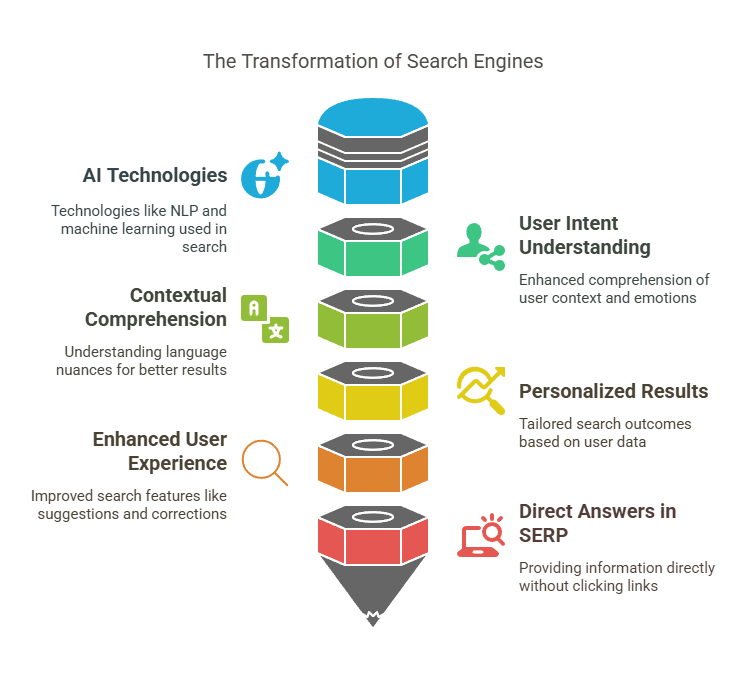The "10 blue links" have been a defining feature of Google's search results page (SERP) for years. This straightforward format presented users with ten hyperlinks to web pages deemed relevant to their search query. However, the digital world is undergoing a rapid transformation, and this iconic presentation of search results is becoming increasingly obsolete. Advancements in artificial intelligence (AI), shifts in user behavior, and the rise of new search modalities all point towards the end of the 10 blue links era.
A comprehensive research process was conducted to gather information for this article. This involved exploring articles and discussions on the future of search, the potential obsolescence of Google's 10 blue links, new search technologies and trends (such as AI-powered search, voice search, and visual search), and how user behavior and expectations change about search.
The Rise of AI-Powered Search and the Decline of Organic Search
The rise of AI is reshaping the landscape of search. Search engines no longer rely solely on simple keyword matching and rigid algorithms. Instead, they leverage AI, natural language processing (NLP), machine learning, and deep learning to understand user intent better and deliver more relevant results. This shift has profound implications for the future of search, including the diminishing relevance of the 10 blue links.
One significant change is the way search engines understand context and intent. AI algorithms can now comprehend the nuances of human language, including context, synonyms, and even the user's emotional state. This allows search engines to provide more accurate and personalized results beyond essential keyword matching. Advanced search engines also enhance the user experience with features like query suggestions, spelling correction, and phonetic search, making the search process more intuitive and efficient.






